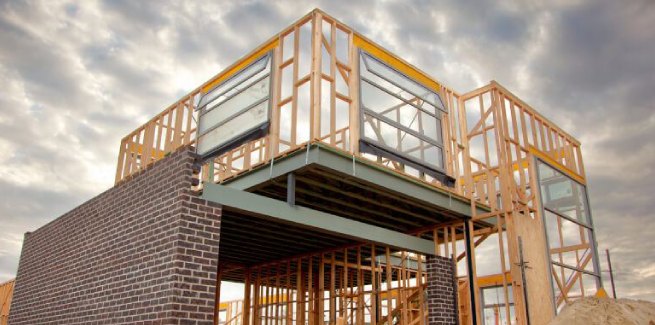According to the Australian Bureau of Statistics’ (ABS) latest Dwelling Approvals data, the number of dwelling approvals in March 2019 declined by 27.3 per cent year-on-year to 14,429, and by 15.5 per cent from February, in seasonally adjusted terms.
The overall fall was driven by decreases in NSW (-27.4 per cent) and Victoria (-27.0 per cent).
Notably, approvals of private dwellings (excluding houses) took a 30.6 per cent dip in March to 5,588, while private house approvals contracted by 3.2 per cent to 8,635.
Tim Hibbert, principal economist of building and construction at BIS Oxford Economics, said building approvals were “lower than anticipated” in March, especially following strong results in February, when total approvals rose by 19.2 per cent, driven by a 64.6 per cent spike in apartment approvals.
He added that the annualised rate of building approvals has remained above 200,000 for five years.
“The latest data pulls us below this watermark,” Mr Hibbert said.
“The downwards trend is set to continue over the remainder of 2019, with negative leads still coming through from property prices, turnover rates, housing finance and land sales.”
Also commenting on the data, HIA senior economist Geordan Murray said March was the weakest month for detached house approvals since 2013.
He believes the data demonstrates how the credit tightening during the second half of 2018 “is echoing through the home building market”.
“The households who have been forced out of the market by the credit squeeze have left a sizable hole in demand for new homes. Builders reported a drop-off in enquiries throughout the latter months of 2018 and these conditions are now showing up in the official approval numbers,” Mr Murray said.
“We expect approvals numbers to continue softening throughout 2019 as the ongoing impact of the credit squeeze combined with pre-election uncertainty impact demand for new homes.”
The senior economist reiterated the HIA’s call to not introduce “new constraints or tax imposts on new housing that could exacerbate the downturn.”
In March, HIA managing director Graham Wolfe warned that the Labor Party’s proposed stricter rules around capital gains tax and negative gearing will “dampen first home buyer capacity to save for their first home” as rental costs will increase.
“While their grandfathering provisions are intended to encourage investors to retain their existing investment properties, decisions about new investments in residential housing will be strongly influenced by the higher taxation grab on investment returns and uncertainty about subsequent sales of new properties and future tax changes,” Mr Wolfe said.
As rental costs increase, rental supply will decrease, according to the HIA.
“Rental supply is crucial,” Mr Wolfe said.
“For many households, living in a rental property is an interim step towards home ownership. It’s a period of independent living while they save a deposit to purchase their own home.”
The HIA managing director last month also warned against the government’s proposal to cap skilled migration to Australia from 190,000 to 160,000 in 2019-20, saying that it will be particularly harmful to the housing industry.
He noted that the housing industry is “more vulnerable to skill shortages than many other industry sectors”. This is due to “an ageing labour force, the physical nature of work, the ongoing demand for new housing and the often cyclical nature of activity”.
“Skilled worker visas have for many years allowed people trained and experienced in other countries to enter Australia and work for an approved business that sponsors the worker. This approach fails to recognise that trade contractors have always operated their own business,” Mr Wolfe said.
“The current visa models simply don’t suit the housing industry’s long-accepted approach to doing business, which relies heavily on the efficient and affordable model of independent contracting.”
As such, in the lead up to the federal election, the HIA called on political parties to remove the caps and limits that exist on skilled and business migration categories and to introduce a new visa category for skilled workers that can operate as a trade contractor independent of a single employer.
[Related: Housing industry ‘more vulnerable to skill shortages’]
 ;
;
